Michisaburo Segawa
출생 : 1894-02-11, Ibaraki Prefecture, Japan
사망 : 1968-02-23
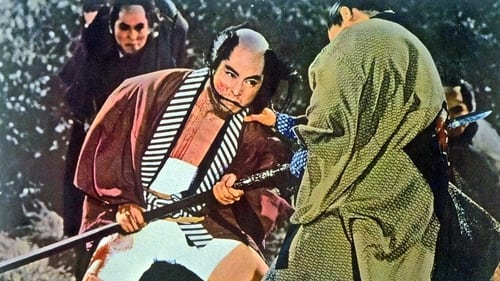
Gonza was a handsome young laborer, a footman and spear-carrier, working hard for his meager wage. All Gonza wanted was to marry his young sweetheart, but despite their mutual poverty, her status as the daughter of a samurai blocked their path to happiness. A chance opportunity to achieve samurai status would come one day, but Gonza will regret trusting the so-called honorable samurai who extended this fateful offer, and the terrible price he'd pay, fighting for his life in one of the most blood-spattered samurai battles ever filmed.
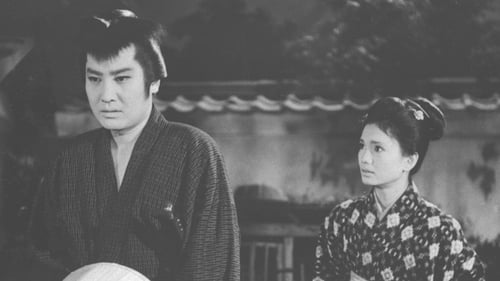
Sukegoro
Period piece about a young man who, because of his hard life alone in the world, has become a yakuza. When he hears that his mother may be living in Edo (Tokyo), he travels there, intent on finding her and leaving the swordsman's life behind. But a team of rival gangsters is hot on his heels.

Magistrate Kinshiro fights with a group of villains plotting the assassination of the Shogun in Edo.

Detective Hanshichi (Kataoka Chiezo) solves 3 mysterious murder cases. Great story and an impressive all-star cast, a must see!
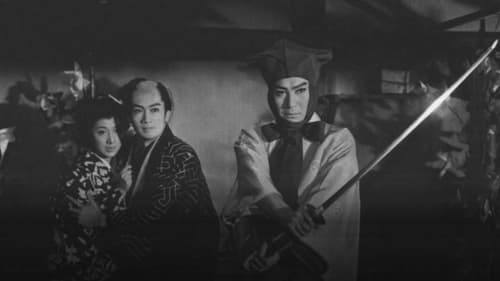
Umon’s services are called upon when innocent bystanders, Kayo and Minokichi, along with the ronin, Gontaro are mistakenly identified as suspects in several recent murder cases. To prove their innocence and uncover the truth, Umon launches his own investigation.
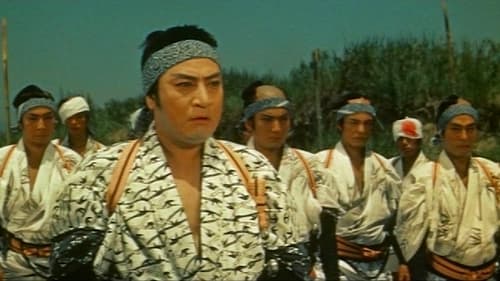
One of the great stories from Japan’s rich history comes to life in this true tale of the bloody showdown between two rival yakuza gangs in the 1840’s. The battle between Boss Sukegoro of Iioka and Boss Shigezo of Sasagawa has been portrayed many times, most notably in the first Zatoichi film, where the blind man befriends the tubercular ronin Hirate Miki, before cutting him down in one of the great duels in cinema history. This all-star extravaganza pulls out all the stops, with appearances by virtually all of the great actors and actresses from Toei’s studio at the time. Ichikawa Utaemon’s portrayal of the kind-hearted, noble yakuza boss Shigezo of Sasagawa contrasts sharply with the devious Sukegoro of Iioka. Corrupt as he may have been, his men were all willing to give up their lives for him.

It's an extravaganza of entertainment as famous magistrate in disguise, Toyama no Kinshiro attempts to confront the elusive thief known as the "Long-Sleeve Burglar". Played to the hilt by Misora Hibari in a delightful performance highlighted by singing, dancing, and swordplay with a unique story within a story twist that starts to unfold in the city jail as a playwright is brought into custody and meets the famed Long-Sleeve Burglar himself. Misora Hibari is totally captivating in this gender bending role as the famed thief whose expoits can only be stopped by the great Kin-san himself!

Jiro Taro
With flashing swordwork and a terrific story, wandering gambler Kusama Hanjiro inspires the wrath of Boss Jirotaro who has been terrorizing travelers along the route through his territory. When Hanjiro steps in to gamble with him one-on-one it leads to a deadly vendetta that will show no mercy. Along the way Hanjiro is called upon to help sisters with no one else to depend on. Will the feud end in tragedy, or can the honest wanderer prevail against the bloodlust of an angry yakuza boss whom he had scarred for life?
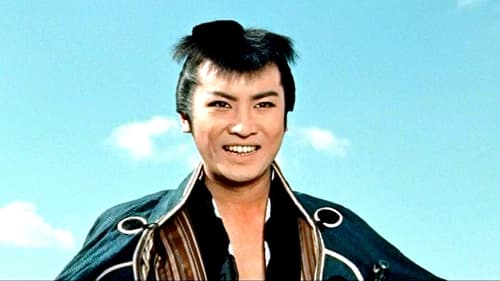
When Boss Juzo's Shinmachi Yakuza family struck fear into the hearts of his adversaries, Boss Shohei's Okabe Yakuza family with a merciless gang of raiders, Itaro of Asama was missing. With the courage of a lion he had gone off to face the enemy and settle the score all by himself. As a result he had to take the blame in place of Boss Shohei, and went off to adventures on his own.

Kunisada Chuji is a common folk hero who looks out for poor people in the country who are at the mercy of corrupt officials. Intent on fulfilling a dying wish from one of his henchmen, Asataro, to find a decent home for his young nephew, Chuji descends from his hide-out in the mountain, and heads to the city in spite of numerous dangers that await him there.

Shôta Nishimura
Haruki Murakami is a successful family man and the head of a camera company. Unbeknownst to Murakami, his arrogant son oscillates between a mistress and a new lover who sings at a nightclub. When Murakami’s disabled daughter befriends the mistress, the affair throws the family into turmoil.

Old radish father
Sonejiro sacrifices all comfort to devote himself to research. Young housewife Yachiyo is disappointed with her husband Kappei, who is more attracted to mountain climbing and another girl. When Yachiyo’s father is introduced to Sonejiro, good will turns evil, and all happiness is at stake.

Kumagura
A remake of High Noon (1952) as a Japanese jidai-geki sword-fighting movie.

An early fantasy film starring Tomisaburô Wakayama.

During the Warring States era of early 17th century Japan, teenage princess Sen is besieged with other members of her family in Osaka Castle, by a rival force led by her grandfather.

The film is about the Yamato's suicide mission to Okinawa in March 1945 to defend the homeland threatened by U.S. bombers. Adapted from Mitsuru Yoshida's 1952 book "Requiem for the Battleship Yamato".

Man in the play / Kajikawa Yosobei
A comedic retelling of the legend of the loyal 47 ronin.

Jidai-geki starring Kanjuro Arashi

Matsujûrô Nakamura
Period film about the legendary detective Umon
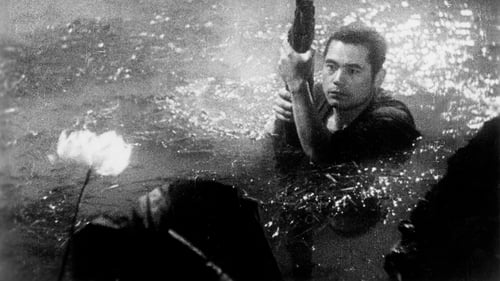
Wada
The story of Sanshiro, a strong stubborn youth, who travels into the city in order to learn Jujutsu. However, upon his arrival he discovers a new form of self-defence: Judo. The main character is based on Shiro Saigo, a legendary judoka.

Jûbei Arakura
This epic depicts the battle between Uesugi Kenshin and Takeda Shingen. The focus of the story is the struggle by the unit leader in charge of the main supply wagons and the supply troops to transport materiel to the Uesugi army. To this are added episodes involving an itinerant woman.

Jurobei, a kaisen tonya (wholesaler in port) in Awa, was wronged and killed on the day of the Dance Festival by the evil merchant & the chamberlin. His brother (Kazuo Hasegawa) vowed vengeance on the day of his brother's death. So every year the villains are worried during the Awa Dance Festival (which is part of the Obon festival), but nothing has ever happened, until seven years later...

An actor, hit on the head, dreams that he has become legendary one-eyed gangster Mori no Ishimatsu.

A classic wartime jidaigeki about the life of the famous samurai and first of the "Great Unifiers" of Japan, Oda Nobunaga, with Kataoka Chiezo and Shimura Takashi

Oono Kurobei
Naosuke, a servant of Okajima Yasoemon, devoted himself to his master. One day, his master Okajima Yasoemon, lost his face in front of people. It was a revenge by Oono, a karo (minister) who lost his chance to earn money by selling a fake antique to the lord. Okajima told the lord it was fake. Okajima endured Oono's humiliation. But, his servant Naosuke, could not. But what could he do? Oono is superior of his master. Naosuke would not hesitate to lay down his life for his master. But killing Oono would ruin his master. He wanted to clear his master's disgrace. What to do?

The rise to power of Toyotomi Hideyoshi from a farmer's son.

This is Kanjûrô Arashi's first film with Nikkatsu after his independent production company went bankrupt (many of these independent companies went bankrupt shortly after the transition to sound). As he is mostly famous for his portrait of Kurama tengu (and on the other hand, he's the definitive actor for Kurama Tengu as well), Nikkatsu made another version of Kurama tengu, co-directed by Masahiro Makino & Sadatsugu Matsuda who are both sons of Shozo Makino. Scripted by Yoshitake Hisa, a jidaigeki specialist who later scripted several Toei All-Star Jidaigeki.
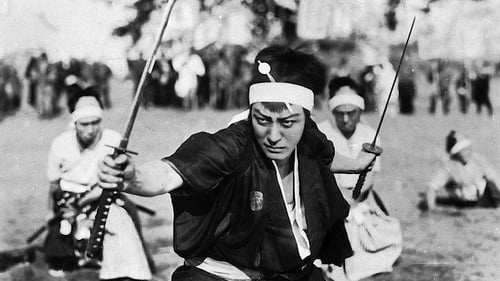
The tale of Nakayama Yasubei’s duel is famous, even if he in reality probably did not cut down 18 opponents. The story has been related in film, rakugo, kodan and on stage many times, in part because Nakayama later joined the famous 47 Ronin (Chushingura) as Horibe Yasubei. But Makino and Inagaki’s version gives no hint of this more serious future, playing up the thrills and the comedy with Bando’s bravura performance. The multiple pans of Yasubei running to the duel are an exemplar of the experimental flourishes of 1930s Japanese cinema and the final duel, performed virtually like a dance number, is a marker of Makino’s love of rhythm and one of the best sword fights in Japanese film history. The film was originally released under the title Chikemuri Takadanoba (Bloody Takadanobaba) with a length of 57 minutes, but suffered some cuts and a title change when it was re-released in 1952.

Based on the old tale of Jiraiya, this 1937 version is essentially a revenge story with fantastic visuals.
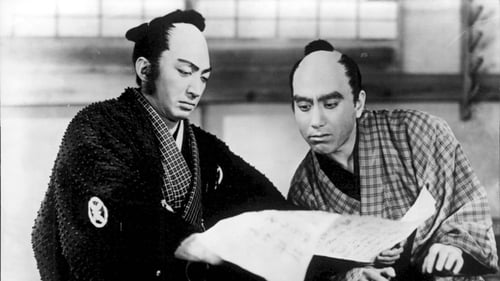
Date Hyobu
A samurai is ordered by his lord to go to Edo and investigate the truth behind the rumor of a rebellion against him.

An adventurer and two accomplices unexpectedly invite themselves to a sword tournament and are offered a job with the lord who organized the competition.

Gantaro Path

This film tells the story of a ronin's search for his parents, but primarily is a group portrait of life in a Tokugawa-era tenement.

In old Edo, Kakunojo (Chiezo), a dandy about town, falls in love with Oichi (Isuzu Yamada), whose merchant family is much beyond Kakunojo's status. He nevertheless pursues her until her initial disgust breaks down into fondness, then romantic feelings, inducing her to abandon her fiance on their wedding day.

In the midst of the depression, two ronin rack their brains to come up with a dishonest scheme. Taking a man from the countryside, they fashion him into Ise Isenokami, the finest swordsman under the sun. Pretending to be his followers, they visit various sword fighting dojo. Out of fear upon hearing the name Isenokami, they pay him off and do not let him enter their training halls. The impostor eventually comes face to face with the real Isenokami after rescuing his daughter, Oyae, who is caught up in a minor incident.

Landlord Himegi
Chiezo Kataoka plays a cowardly samurai, whose honor is on the line when it becomes necessary to avenge the murder of his father. The culminating duel takes place on a night of fireworks.

Kingoro
His mother abandoned him as a child, so he had no choice but to live outside society. Even so, he grows up determined to reunite with her. Worried that she might be living in misery, he saves his money to help, only to find that she has married into wealth and social position and has no intention of seeing her outcast Yakuza son...

Heikichi Yamamuro
Nanjo Mikisaburo is a young samurai trying to restore his ruined family to its past glory. Enduring the contempt and disdain of high-ranking samurai, Mikisaburo devotes himself to the way of the warrior, mastering the literary and martial arts. His master Kurahashi Jupeita's daughter Misao feels for Mikisahuro who maintains his pride in the face of the arrogant samurai's scorn.

Denshichi
A captivating operetta by Masahiro Makino based on Juppensha Ikku's humorous novel "Tōkaidōchū Hizakurige" starring Chiezo Kataoka and Kyoji Sugi.





























